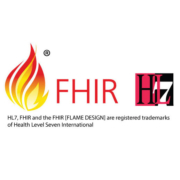Exscribe Commits to FHIR Interoperability Standard
 Bethlehem, PA, February 21, 2019 – Exscribe Inc. declares its commitment to implementing the HL7 FHIR Release 4 in 2019, following proposed rules from the Centers for Medicare and Medicaid Services (CMS) and the Office of the National Coordinator for Health IT (ONC). These proposed rules are designed to improve the interoperability of electronic health records. Exscribe is excited to be participating in the next phase of healthcare data information exchange, demonstrating its commitment to improving electronic health record usability and access for everyone.
Bethlehem, PA, February 21, 2019 – Exscribe Inc. declares its commitment to implementing the HL7 FHIR Release 4 in 2019, following proposed rules from the Centers for Medicare and Medicaid Services (CMS) and the Office of the National Coordinator for Health IT (ONC). These proposed rules are designed to improve the interoperability of electronic health records. Exscribe is excited to be participating in the next phase of healthcare data information exchange, demonstrating its commitment to improving electronic health record usability and access for everyone.
Richard McCormick, COO, explained why Exscribe is embracing the change. “Enabling seamless data exchange between private orthopaedic practices and other care providers is paramount to ensuring the long-term viability of the private orthopaedic practice. It has been common practice for larger healthcare systems to exploit the lack of interoperability standards and embrace information blocking practices as a way to force smaller, independent-minded physician groups into joining their health system.” However, new technology and increased regulations offer a different path forwards.
FHIR stands for Fast Healthcare Interoperability Resources, developed by Health Level 7 International (HL7), an organization whose primary focus is to develop frameworks for the sharing, integration, and retrieval of health data. The latest release of FHIR is a normative standard, meaning future changes will be backwards compatible. FHIR works by exchanging resources between systems using a RESTful API, or a web-based approach. Some of FHIR’s primary goals include supporting multiple paradigms, requiring human readability, and focusing on implementers to improve the speed and efficacy of health data exchange.
Earlier this month, CMS and ONC announced new proposed rules for improving interoperability and patient data access while discouraging information blocking practices. The ONC proposed rule, 21st Century Cures Act: Interoperability, Information Blocking, and the ONC Health IT, would require the use of the FHIR standard for secure open APIs. It also identifies reasonable and necessary activities that would be exceptions to information blocking penalties, such as not making PHI accessible during scheduled health IT system maintenance for security purposes.
Meanwhile, the Interoperability and Patient Access Proposed Rule from CMS advocates for the public reporting of providers or hospitals that participate in information blocking practices. If passed, it will also require Medicaid, CHIP, Medicare Advantage and Qualified Health Plans in the federally-facilitated exchanges to provide enrollees with immediate electronic access to medical claims and other health information by 2020, also through the open data-sharing technology of FHIR-based APIs.
McCormick states, “With the growing adoption of FHIR and the rule recently released by the ONC, help is on the way. By embracing and FHIR-enabling our EHR, Exscribe is demonstrating our ongoing commitment to implementing innovative solutions that will assist our orthopaedic physician users in their quest to remain independent, and grow their orthopaedic practice in a manner that meets their needs, not the needs of large institutions.”
About Exscribe, Inc.
Looking for a way to better manage his Orthopaedic practice, nationally-renowned orthopedic surgeon Ranjan Sachdev, MD, MBA, CHC founded Exscribe in 2000. A pioneer in the EHR field, Dr. Sachdev worked with a team of Orthopaedists and IT professionals to develop Exscribe Orthopaedic EHR, Ortho10™ and Exscribe Orthopaedic PM. Products designed specifically for Orthopaedic surgeons to help them maintain compliance and profitability in an ever-changing regulatory environment.
To learn more about Exscribe products and services visit www.exscribe.com, email info@exscribe.com, or call (866) 870-1521. Connect with us on Facebook, LinkedIn and Twitter.
###


